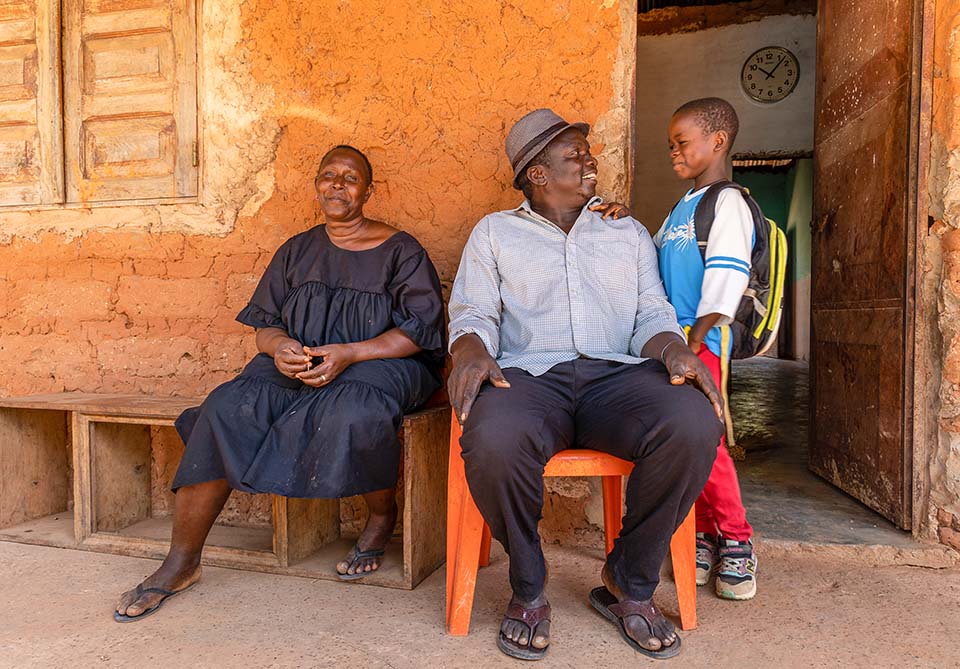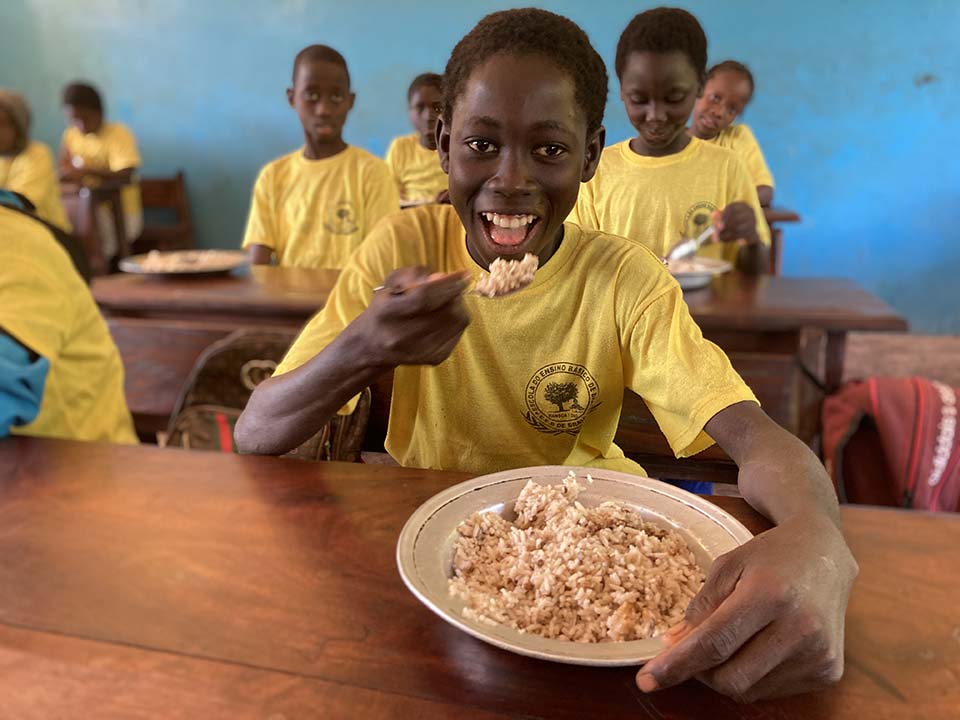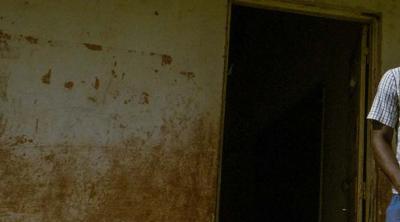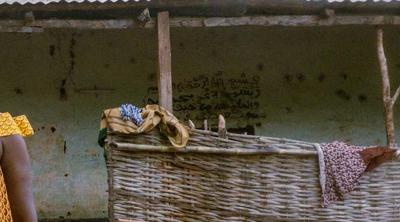CRS in Guinea-Bissau
CRS was established in Guinea-Bissau in 1988.Our programming primarily aims to improve the lives of vulnerable women and children, with interventions in maternal and infant child survival, microfinance, and education. Our work is guided by CRS Vision 2030: that all human beings will realize their full God-given human potential in just and peaceful societies that respect the dignity of each person and the integrity of creation. Our current work focuses on the following goals:

Participants in CRS' school feeding program in Capunga Community School in Guinea Bissau gather outside their home. The project ensures that children in the community receive warm meals daily and stay in school.
Photo by Ndé Ndifonka/CRS
Goal Area 4 | All Children Reach Their Full Health and Development Potential in Safe and Nurturing Families.
McGovern-Dole FFE, Project MeREECE
Improves the literacy of school-age children and promotes proper health, nutrition, and dietary practices through a school-feeding programming
Catholic Relief Services (CRS) is proud to implement a $17 million McGovern-Dole International, Food for Education and Child Nutrition project, funded by USDA. The MeREECE project—Promotion of Educational and Economic Performance in Educative Communities, or Melhoria do Rendimento Escolar e Económicas das Comunidades Educativas (MeREECE) — aims to improve literacy among school-age children and to promote good health, nutrition and food practices. The project covers 350 schools (pre-school and elementary school) throughout 5 regions: Bafatá, Cacheu, Gabu, Oio and Quinara. Project activities include improving teacher and student attendance, providing school meals, training teachers, creating savings and credit groups in the communities, and building capacity at various levels. The MeREECE project is implemented in partnership with the Government of Guinea-Bissau’s Ministry National and Higher Education and Ministry of Public Health. , as well as Plan International Guinea-Bissau and Caritas Guinea-Bissau.
“We are proud of the work we have done with our partners. This program is changing children’s lives and changing the trajectory of their families’ futures. Ensuring that children have the food they need to attend school and focus on lessons, and that their teachers have the tools and training they need to make the most of the school day, is an investment in our communities today and our leaders tomorrow.” - Aruna Mane, COP of the Project

At this village school in the region of Oio, students come from surrounding villages to learn and to enjoy a school meal.
Photo by Melissa Roggero, International Development Fellow/CRS
Stats
People Served: 34,874 (FY 2014: 5,057 direct; 29,817 indirect)
Population: 1,792,338
Size: 13,946 sq miles; slightly less than three times the size of Connecticut
Our Partners
Become a Partner ›CRS' History in Guinea-Bissau
Catholic Relief Services has had an active presence in Guinea-Bissau since 1988. CRS' long-term presence and close collaboration with local partners has allowed us to respond effectively to changing conditions within the country, from our Dakar office in neighboring Senegal.
CRS and its partner, Caritas Guinea-Bissau, are focusing on the nutritional and income needs of breastfeeding and pregnant women, and on reducing maternal and child morbidity and malnutrition through monitoring and community health care services.
For example, we work in the regions of Bafatà and Gabú, where maternal mortality rates are among the highest in the world, intensified by poverty, lack of access to health services and cultural norms.
Since 2009, CRS Senegal has worked through Caritas Guinea-Bissau to establish “House of Mothers” locations on hospital grounds that promote healthier pregnancies and safe deliveries. At these sites, patients receive health and nutritional education, medical treatment and three meals a day before giving birth accompanied by a skilled attendant at the hospital. Community volunteers are trained to identify and refer high-risk pregnant women to the facilities through an outreach program. The project has reached more than 35,000 community members since its inception.
Within these same communities, CRS is implementing a Savings and Internal Lending Communities (SILC) project to create economic opportunities, helping community members to form groups, pool their savings and make loans. This approach is allowing Bissau-Guineans to access the affordable financial services they require.
In 2015, with the onset of the Ebola virus disease plaguing West Africa, CRS, in collaboration with its partner Caritas Guinea-Bissau, carried out an Ebola awareness and prevention project. The “Be Safe” project increased community knowledge of the disease and promoted the adoption of protective behaviors through the training of key local actors, community mobilizations, education materials, radio, and the use of ICT4D innovations.
CRS continues to strengthen epidemiological surveillance in Guinea-Bissau through community monitoring for early detection and response against potentially epidemic diseases. The project strengthens community participation in monitoring the Ebola virus disease and other communicable diseases, such as Tuberculosis, through monitoring committees and community information. CRS is working closely with the Ministry of Health to address Tuberculosis incidence and prevalence rates which are on the rise.




